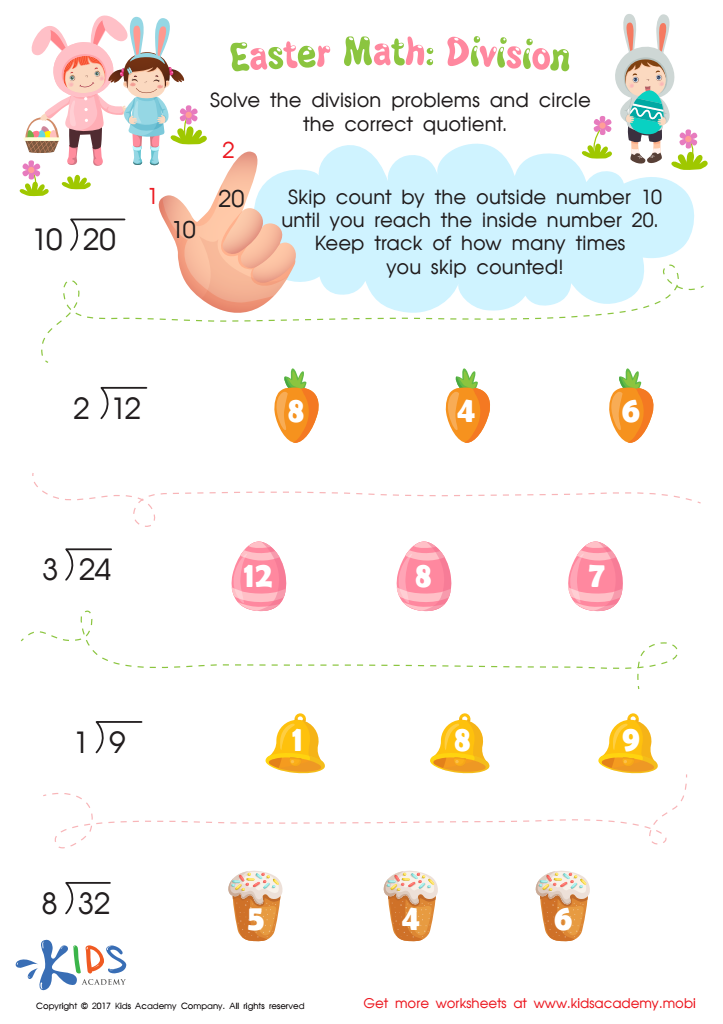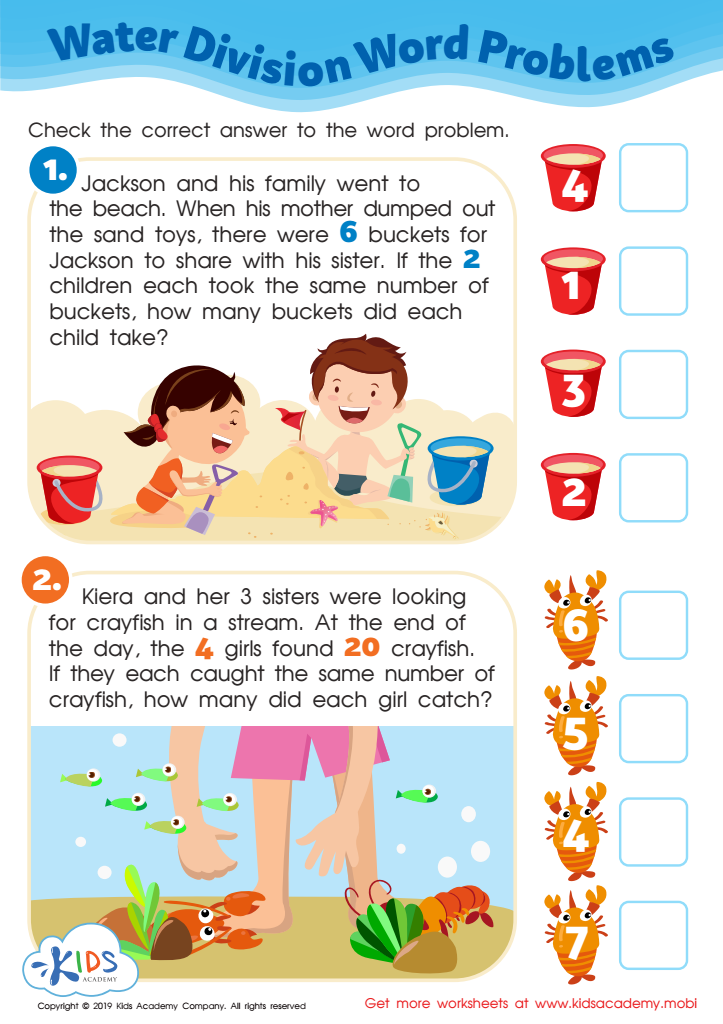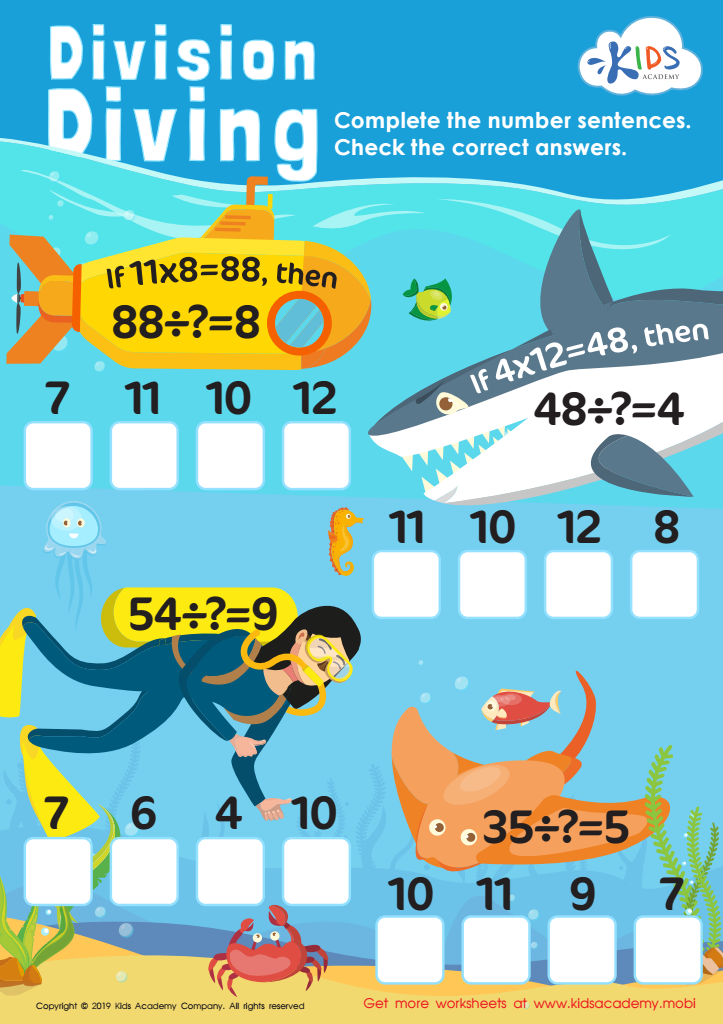Mathematical reasoning Normal Division Worksheets for Ages 7-9
3 filtered results
-
From - To
Enhance your child's mathematical reasoning skills with our engaging Normal Division Worksheets designed specifically for ages 7-9. These worksheets focus on developing a strong conceptual understanding of division through real-world problems and interactive exercises. With a variety of visually appealing activities, children will practice essential skills such as interpreting division scenarios, analyzing problem-solving strategies, and applying their knowledge in meaningful contexts. Our carefully crafted resources are perfect for home study or classroom use, promoting critical thinking and boosting confidence in young learners. Give your child the tools they need to excel in mathematics while having fun with their learning journey!


Division Worksheet


Water Division Word Problems Worksheet


Division Diving Worksheet
Mathematical reasoning in division is crucial for children aged 7-9 as it lays the foundation for their overall mathematical understanding. At this stage, children transition from concrete counting and basic arithmetic to more abstract concepts. A strong grasp of normal division enhances their problem-solving skills, enabling them to think critically about how numbers interact.
Understanding division—especially through reasoning—helps children comprehend not just the "how," but the "why" behind mathematical operations. This fosters a deeper understanding of concepts such as fractions and ratios, which are essential in more advanced mathematics encountered in later grades. Additionally, mathematical reasoning empowers students to recognize patterns and relationships in numbers, promoting an analytical mindset useful in everyday situations.
Moreover, when teachers and parents prioritize reasoning in mathematics, they encourage curiosity and resilience. Children become more engaged in their learning process, feeling confident to tackle challenging problems. It contributes to a lifelong positive relationship with math, reducing anxiety and building competence. Ultimately, investing in mathematical reasoning at this age equips children with essential skills, prepares them for future academic challenges, and supports their cognitive development. Ensuring children are solid in this area is both crucial and beneficial for their overall educational journey.
 Assign to My Students
Assign to My Students




















